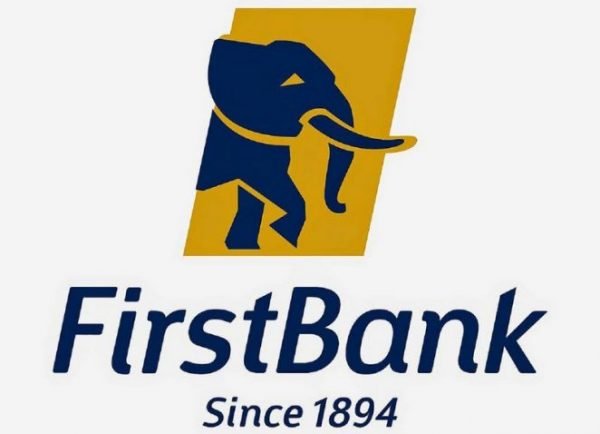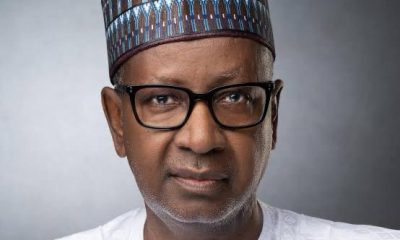Economy
NNPC’s Monthly Deductions from FAAC Hit N200bn in December

The Nigerian National Petroleum Company (NNPC) Limited will again make a deduction of roughly N200 billion from the joint federal, state, and local government account when the Federation Account Allocation Committee (FAAC) meets later this month to share the statutory monthly allocation.
The presentation of the national oil company to FAAC in November, indicated that the N200 billion will be the highest amount deducted by the NNPC since it resumed payment of petroleum subsidies in February this year.
In all, it further showed that the NNPC has netted off at least N1.027 trillion from monies accruing to the three tiers of government in the country between February and October as payment for the controversial petrol under-recovery.
To encourage the use of gas as domestic and vehicular fuels, the federal government has said it was leveraging the pricing framework and the Central Bank of Nigeria (CBN)’s gas development fund to create appropriate funding models to support the use of gas among vulnerable Nigerians to tackle the price hike.
While lamenting that the North-west zone of the country consumes only four per cent of the cooking gas consumed in the country, the federal government also stated that the recently signed Petroleum Industry Act (PIA) of 2021 would increase the per capita consumption of gas in Nigeria.
A breakdown of the various deductions indicated that payments have increased progressively, growing from N24.3 billion in February to N60.3 billion in March and N61.9 billion in April this year.
Furthermore, in May, the NNPC removed N126 billion as a subsidy, while June came next with N164.3 billion.
In July, the document stated that N103.2 billion was spent on what the government terms under-recovery.
August had the year’s lion’s share of N173.1 billion.
However, this will be overtaken by the N200 billion planned deduction later this month, while September’s deduction stood at N149.28 billion and the October figure was N163.709 billion.
However, the overall crude oil lifting by the newly rechristened company almost doubled in September, according to the national oil company during the presentation which held on the 17th of November.
In addition, the presentation signed by Bello Abdullahi, on behalf of the Chief Financial Officer, Umar Ajiya, noted that for October, the NNPC spent over N7.7 billion on its strategic holdings and fixing of its pipelines.
Besides, the NNPC stated that product losses amounted to N143.3 billion, stressing that the “value shortfall” of nearly N200 billion would be subtracted later this month when the FAAC meeting holds.
Part of the presentation obtained by reporters read: “The overall NNPC crude oil lifting of 11.49 Mbbls (export and domestic crude) in September 2021 recorded 98.5 per cent increase relative to the 5.79 Mbbls lifted in August 2021.
“Domestic gas and other receipts in the month was N6.78 billion. The domestic gas in the month was N4.07 billion. Feedstock valued at $59.43 million was sold to Nigeria LNG during the period out of which $52.57 million was received during the month.
On domestic crude and gas sales, it added: “The sum of N252,968,629,898.13 was the gross domestic crude oil and gas revenue for October 2021.
“The recoveries were: strategic holding cost and pipeline repairs amounting to N7,757,631,778.84, product losses worth N143,386,571.87, and value shortfall of N163,709,314,928.61. This comprised of the N123,709,314,928.61 for September 2021 and N40,000,000,000.00 value shortfall deferred in June 2021.”
For November operations revenues which are due for sharing in November, the NNPC indicated that almost N200 billion will be netted off or removed as it had done in the previous months.
“The October 2021 value shortfall of N199,007,758,422.75 is to be recovered from the November 2021 proceeds due for sharing at the December 2021 FAAC meeting,” it emphasised.
On its other receipts, the national oil company noted that the sum of $95.63 million being miscellaneous receipts, gas and ullage fees as well as interest income was received in October 2021.
Compared to the previous month, the overall NNPC crude oil lifting was 5.79Mbbls in August 2021, a record of 33.5 per cent decrease relative to the 8.71Mbbls lifted in July 2021.
The NNPC said that Nigeria recorded 1.417 barrels per day million production in September 2021, just like it did in August 2021, adding that while crude oil export revenue received in September 2021 amounted to $8.38 million equivalent of N3.22 billion, for October “there was no crude export revenue”.
In June, the NNPC told the nation that Nigeria was losing about 42 million litres of petrol to the activities of smugglers across the country’s borders, increasing Nigeria’s estimated daily consumption of 60 million litres to 103 million litres, thereby worsening the subsidy payment regime.
Nigeria has not been able to reap the full benefits of rising international oil prices because it doesn’t refine a drop of the fuel it consumes locally, so almost all the revenues are spent importing petrol and paying subsidies, even for neighbouring countries where the product is smuggled into.
On November 23, the Group Managing Director of NNPC, Mallam Mele Kyari, projected that petrol would sell for between N320 and N340 per litre from February, next year.
Stressing that Nigeria would be out of the subsidy regime in the first quarter of 2022, Kyari explained that subsidy would have been eliminated this year, but for certain (unnamed) factors that prevented it.
To ameliorate the impact of the petrol subsidy, the federal government said it was planning to give N5,000 each to 40 million poor Nigerians.
This proposition has been rejected by many Nigerians who believe there’s no sense in replacing a lesser subsidy with a much more burdensome one.
In addition, the labour unions have cautioned the federal government against unilateral removal or stoppage of the petrol subsidy regime, warning that removing it without meeting labour’s demands will be met with stiff resistance.
“There will be no provision for it (subsidy) legally in our system, but I am also sure you will appreciate that government has a bigger social responsibility to cater for the ordinary and therefore engage in a process that will ensure that we exit most subtly and easily,” Kyari said.
The NNPC boss spoke during the presentation of the November edition of the World Bank Nigeria Development Update, titled: “Time for Business Unusual.”
In August, Chairman of the Nigerian Governors’ Forum, and Governor of Ekiti State, Dr. Kayode Fayemi, speaking on behalf of his colleagues in reaction to the new Petroleum Industry Act (PIA) signed by President Muhammadu Buhari said he didn’t believe in the credibility of the subsidy figures churned out by the NNPC.
Meanwhile, the federal government said it was leveraging the pricing framework and the CBN’s gas development fund to create appropriate funding models to support the offtake of gas among vulnerable Nigerians to tackle inflation.
The Minister of State for Petroleum Resources, Chief Timipre Sylva, disclosed this yesterday during the inauguration of a 100-metric tonne LPG (cooking gas) storage and bottling plant, constructed by Butane Energy Limited in Kabukawa, Katsina State.
Sylva, represented by the Permanent Secretary of the Ministry, Dr. Sani Gwarzo, explained that the pricing of LPG was a major threat to gas affordability and penetration in the country.
He said the declaration of Decade of Gas by President Muhammadu Buhari, was to reinforce Nigeria’s aspiration to leverage on its gas resources estimated at 206 TCF to develop the country’s national industrial, commercial and agricultural base.
He reiterated that the federal government had embarked on numerous gas-based initiatives such as the Nigeria Gas Flare Commercialisation Programme, the National Gas Expansion Programme (NGEP), and the Ajaokuta-Kaduna-Kano (AKK) Gas Pipeline to accelerate economic development.
“I cannot conclude this speech without touching on gas pricing which is a major threat to gas affordability and gas penetration.
“The federal government is leveraging on the gas pricing framework and the CBN gas development fund to create appropriate funding models to support offtake of gas especially among vulnerable groups”.
He added, “The deliberate focus of this administration to develop the gas sector is largely the driving force behind NCDMB commercial intervention in partnering with the private sector, to establish Butane LPG bottling plant in several northern states including Katsina, Kano, Kaduna, Bauchi, Niger, and the FCT,” he stated.
The minister averred that the passage of the Petroleum Industry Act of 2021 by President Buhari has reinforced the government’s commitment to transform the oil and gas industry by creating an enabling environment for accelerated investment in exploration and field development projects.
This, he said, would pave the way for the integration of host communities into the benefit plans of the industry and entrenchment of local content as the driving philosophy for oil and gas transactions in Nigeria.
“In effect, the PIA and the intensive investment in gas transportation, storage, and marketing infrastructure will no doubt increase per capita consumption of gas in Nigeria which currently stands at 80 cubic meters per capita consumption despite our huge gas reserves”.
Earlier, the Executive Secretary of the Nigerian Content Development and Monitoring Board (NCDMB), Mr. Simbi Wabote, said despite the utilisation of 1,000,000 metric tonnes of LPG in 2020, Nigeria has one of the lowest per capita LPG consumption in Africa.
He affirmed that available data from the office of the National Gas Expansion Programme revealed that LPG utilisation in the North-west was four per cent compared to 14 per cent in the South-west and 15 per cent in the South-east.
“That is why we chose to partner Butane Energy to increase the level of LPG utilisation in the North as they understand the market in the region, possess the technical capability and the determination to embark on such a venture,” he added.
In his remarks, the Chairman of Butane Energy Limited, Mr. Isa Inuwa, said by September, the company would have five gas plants with a total storage capacity of 820 metric tonnes.
He noted that the five gas plants would be located in Kano, Katsina, Kaduna, Bauchi, Niger, and the Federal Capital Territory (FCT) with the capacity to process 9,200 12.5kg of cylinders.THISDAY
Economy
CBN Takes Steps to Strengthen Banking Sector, Issues Routine Transitional Guidance

The Central Bank of Nigeria (CBN), has introduced time-bound measures for some banks still completing their transition from the temporary regulatory support provided in response to the economic impact of the COVID-19 pandemic.
According to a statement issued by Mrs Hakama Sidi-Ali, , CBN’s Acting Director, Corporate Communications Department , this is part of its ongoing efforts to strengthen the banking system.
Sidi-Ali said that the step was part of the CBN’s broader, sequenced strategy to implement the
recapitalisation programme announced in 2023.
She said that the programme, designed to align
with Nigeria’s long-term growth ambitions, had already led to significant capital inflows and balance sheet strengthening across the sector.
“Most banks have either completed or are on track to meet the new capital requirements well before the final implementation deadline of March 31, 2026.
“The measures apply only to a limited number of banks. These include temporary restrictions on capital distributions, such as dividends and bonuses to support retention of internally generated funds and bolster capital adequacy.
“All affected banks have been formally notified and remain under close supervisory engagement ” she said.
She said that to support a smooth transition, the CBN had allowed limited, time-bound flexibility
within the capital framework, consistent with international regulatory norms.
“Nigeria generally maintains Risk-Based Capital requirements that are significantly more stringent than the global Basel III minimums.
“These adjustments reflect a well-established supervisory process consistent with global norms. Regulators in the U.S., Europe, and other major markets have implemented similar transitional measures as part of post-crisis reform efforts.
“The CBN remains fully committed to continuous engagement with stakeholders throughout this period via the Bankers’ Committee, the Body of Bank CEOs, and other industry forums,” she said.
She said that the goal to ensure a transparent, Nigeria’s banking sector remained fundamentally strong.
According to her, these measures are neither
unusual nor cause for concern.
She said that they were a continuation of the orderly and deliberate implementation of reforms already underway.
She said that the CBN would continue to take all
necessary actions to safeguard the sector’s stability and ensure a robust, resilient financial ecosystem that supports sustainable economic growth. (NAN)
Economy
Cybercrime: First Bank Invests N15bn to Protect Systems From hackers in 5 months –CEO

First Bank HoldCo Plc says it has spent more than N15 billion to protect its systems against criminals between January and June.
Olusegun Alebiosu, the Chief Executive Officer (CEO), First Bank HoldCo Plc, said this in an interview in Abuja on Wednesday.
Alebiosu, who spoke on the sideline of a two-day National Seminar on Banking and Allied Matters for Judges, said the Bank had spent three N3 billion in June to protect its systems.
He said the bank had the best cyber security framework in the country, hence the investment.
The CEO who was speaking on the increasing number of attacks by cybercriminals, especially on banks’ systems, assured First Bank customers of the safety of their monies.
Alebiosu frowned at the rate at which some citizens were involved in cybercrimes, saying the country must move fast to curb their excesses.
”No customer would lose their money in First Bank unjustly.
”If their money is missing in First Bank, First Bank will pay back.
”Before I joined First Bank, I have an account with First Bank.
”One of the reasons why I had an account with First Bank was, I said to myself, if my money is missing, it is the only bank I know I will collect my money without any excuses, ” he said.
Reacting to some customers’ complaints on the delay by the bank to handle cases of fraudulent transactions, Alebiosu said the bank must conduct investigations involving different stakeholders.
The CEO said the delay was caused by the collaboration between the stakeholders involving security agencies and banks where the money was transferred to determine the realities about the cases.
He urged customers to tread carefully in handling and releasing their financial information.
”Customers themselves, most times, also compromise their own security details; I have seen a lot of people that give their cards to somebody to help them withdraw money from their ATM.
”They compromise their password so, when something happens and you say, my money disappeared, you forget the day you gave your card to someone else and they can use that to transfer your money.
”Some people compromise even their own ID on the system carelessly, some give their Bank Verification Number (BVN) and they use it against them.
”Now, why does it take time for the bank to react, everything you give to the bank, the bank has to investigate it.
”The money might have gone to other banks so, you start tracking from other banks but
Sometimes customers are impatient,” he said.
On frauds allegedly perpetrated by staff, he said the bank had internal employee fraud software, that monitors activities of employees on the system.
According to him, if you know how many of our staff we sack on a monthly basis, you won’t believe me.
”So if there are triggers, people will be involved. It is for us to run faster than them, and see how we can help to stop these kinds of things in our system but wherever we see it, we deal with it decisively, ” Alebiosu said.
He said that various stakeholders including the banks, law enforcement agencies and the judiciary had a role to play in curbing cybercrimes. (NAN)
Economy
GTCO Begins Deduction of USSD Fee From Airtime Balance

Guaranty Trust Holding Company (GTCO), says it will begin the deduction of Unstructured Supplementary Service Data (USSD fee from the airtime balance of its customers from June 18.
The bank in a message to its customers on Wednesday, said the N6.98 fee would no longer be deducted from customers’ bank account balance.
”Dear Customer, please be informed that effective June, 18, the N6.
98 USSD fee will be deducted from your airtime balance, no longer from your bank account”.The Nigerian Communications Commission (NCC) had directed deposit money banks (DMBs) to stop deducting charges for USSD transactions directly from customers’ accounts. (NAN)


























